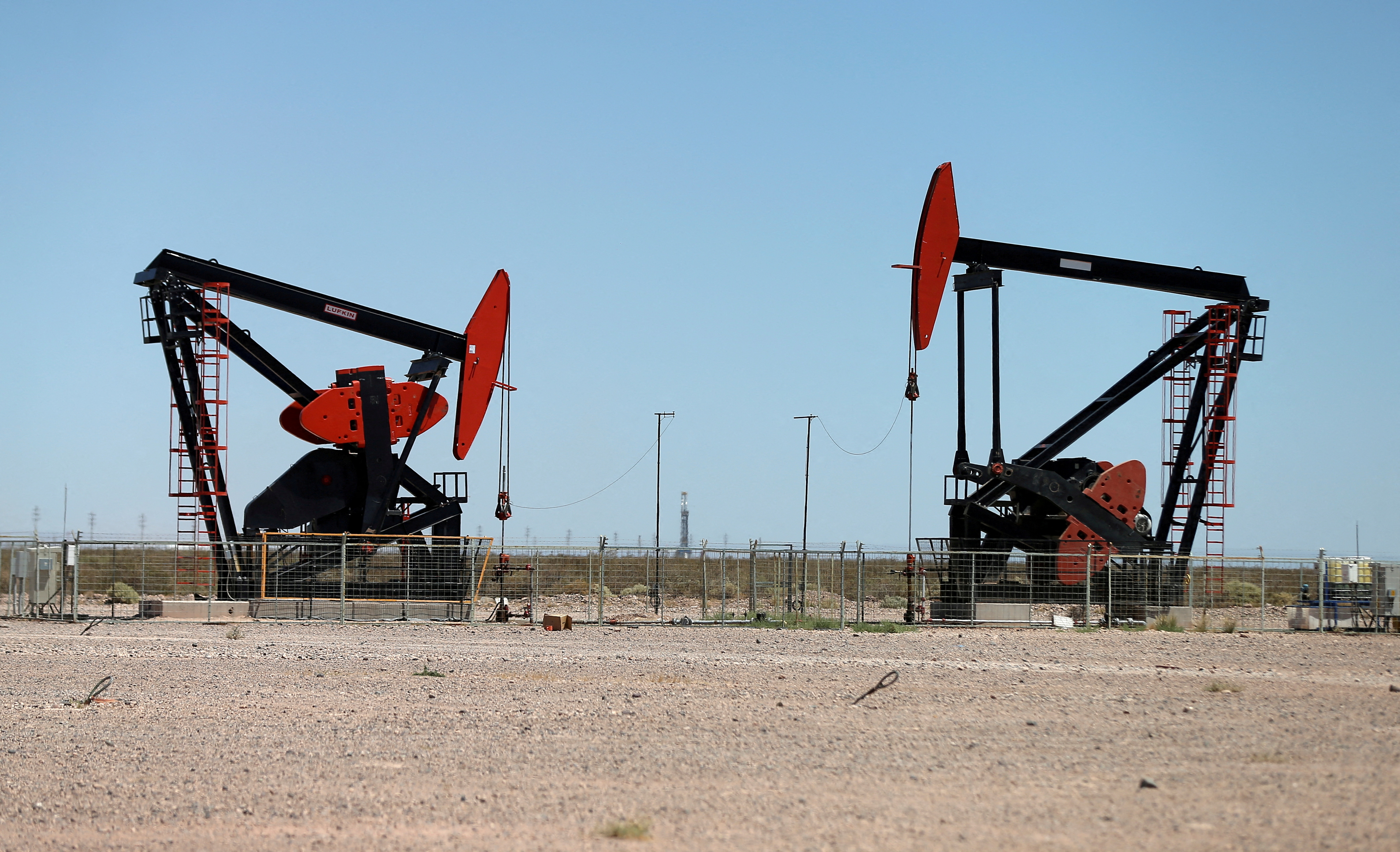
Oil pump jacks are seen at the Vaca Muerta shale oil and gas deposit in Argentina’s Patagonian province on January 21, 2019. REUTERS/Agustin Marcarian/File Photo Get license rights
LONDON, Oct 4 (Reuters) – Oil fell on Wednesday on demand fears fueled by macroeconomic headwinds as Saudi Arabia and Russia pledged to continue crude output cuts until the end of 2023.
Brent crude futures were down $2.02, or 2.22%, at $88.90 a barrel by 1228 GMT, while US West Texas Intermediate crude (WTI) was down $2.10, or 2.35%, at $87.13.
An online meeting of the OPEC+ Joint Ministerial Monitoring Committee (JMMC) on Wednesday kept the group’s output policy unchanged, two sources said while the meeting was underway.
According to the report, JMMC will meet next on November 26.
Oil prices are under pressure due to demand fears driven by macroeconomic interventions.
“From a focus on short-term tightening, the long-term implications of interest rates, the subdued macro environment and how OPEC+ plans to deal when they meet on November 26,” said an Investec analyst. Callum Macpherson.
Saudi Arabia’s energy ministry confirmed on Wednesday that it will continue to cut crude supply by 1 million barrels per day (bpd) until the end of the year.
Russia said in April it would continue its current 300,000 bpd crude export cuts until the end of the year, review its voluntary 500,000 bpd output cut and withdraw it in November.
Russian Deputy Prime Minister Alexander Novak said joint voluntary cuts by Russia and Saudi Arabia had helped balance oil markets.
Novak also welcomed the positive effect the Kremlin’s diesel and gasoline export ban had on the domestic market, saying the government continues to monitor fuel prices in Russia.
Russia may be ready to ease its diesel ban in the coming days, Kommersant daily reported on Wednesday, citing unidentified sources.
A stronger US dollar could also weigh on investor sentiment.
Current dollar strength is “a rally that will continue to haunt all markets, including oil, even if, as now, there is a compelling fundamental backdrop,” PVM analyst John Evans said.
As a trading currency for oil, a strong dollar makes oil relatively more expensive for holders of other currencies, reducing demand.
Reporting by Robert Harvey, Laura Sanicola and Muyu Xu; Editing by Mark Potter and Louise Havens
Our Standards: Thomson Reuters Trust Principles.

/cloudfront-us-east-2.images.arcpublishing.com/reuters/5L7A5E5CCBIGJBV4BXGODRBF3Q.jpg)